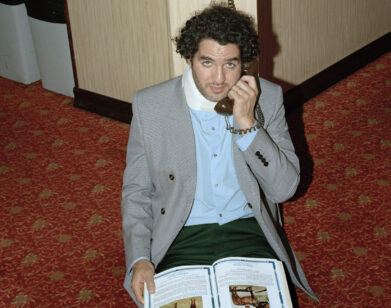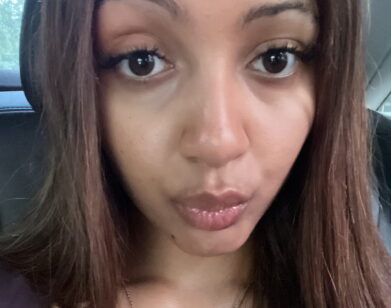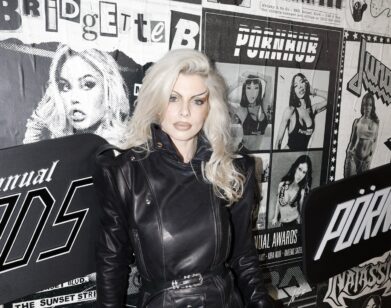REPORT
“The Epstein Stuff Does Pretty Well”: Six TikTok Reporters on the Future of News
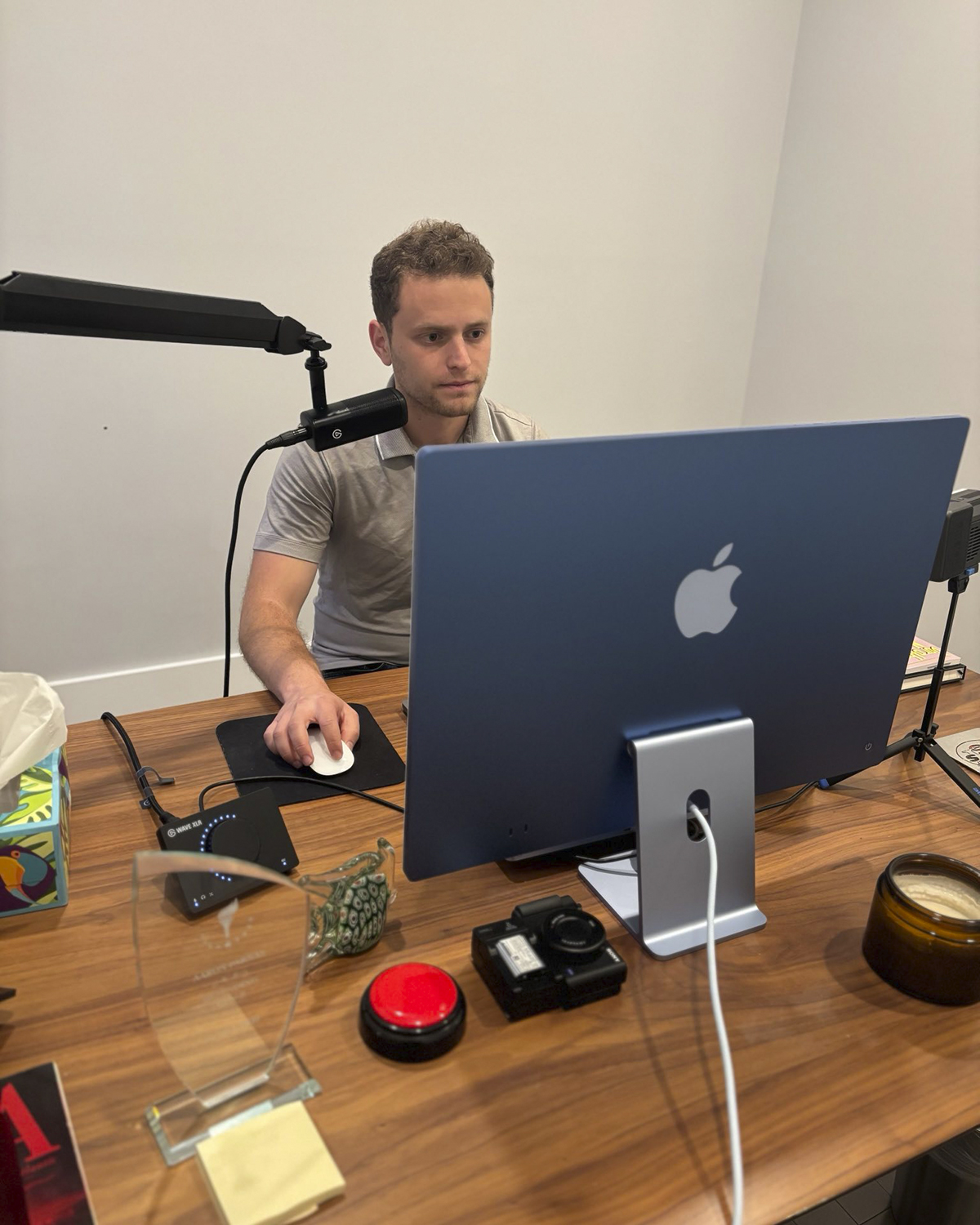
Courtesy of Aaron Parnas.
Instead of grabbing the remote when major news breaks, today most people just open TikTok. Over the past few years, a cadre of online content creators has skyrocketed to fame by providing up-to-the-minute news and analysis in bite-sized videos that reach millions. These influencers have become de facto newscasters to a generation that’s never known a world without the internet and is deeply distrustful of mainstream corporate media and old school legacy institutions. But the popularity of newsfluencers raises new questions about editorial independence, sustainable business models, and what it means to be a journalist in 2025. To find out more, I spoke to six TikTok reporters about how they operate, and what journalism looks like in a post-truth world.
———
AARON PARNAS
TikTok: @aaronparnas1
Follower count: 4.3M
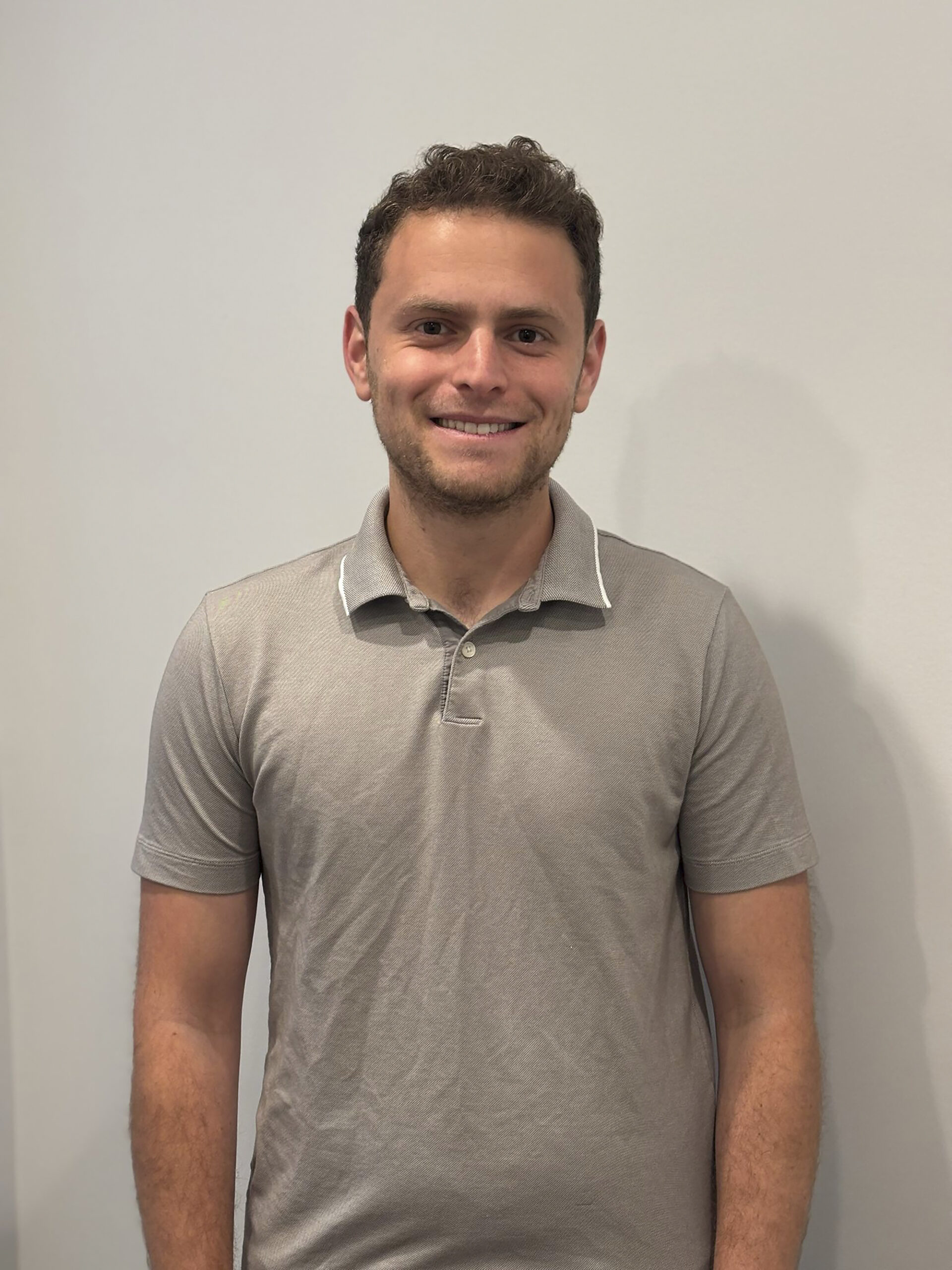
Photo Courtesy of Aaron Parnas.
TAYLOR LORENZ: Why did you start covering the news on TikTok?
AARON PARNAS: It dates back to February of 2022. At the time, I had family in Ukraine. Russia was preparing to invade and I was a fledgling lawyer here in the States, and I felt like what my family was experiencing on the ground wasn’t what the mainstream media was reporting. So I pulled out my phone and started to make TikToks. Within a week, I had a million followers.
LORENZ: Where do you get your information?
PARNAS: I have several screens in my house. The first is a constant monitor of C-SPAN. The second is a monitor of the X and Truth Social feeds of every member of Congress and world leader, because, unfortunately, a lot of policy is now made through Truth Social. The third is, because I’m a lawyer, I have access to PACER and other legal research platforms where I can get documents quickly. I also have specific local and investigative journalists that I really trust.
LORENZ: Do you consider yourself a reporter, a commentator, an entertainer, or all three?
PARNAS: A journalist. I’m just trying to provide people with the news.
LORENZ: Who’s your audience?
PARNAS: There’s two groups. The first is young people who scroll TikTok and Instagram who’ll never get the news elsewhere. The second group is older folks who are tired of the way mainstream media presents the news.
LORENZ: What was your most viral story?
PARNAS: It was back in December of 2024, following the Luigi Mangione story. A couple weeks after he was arrested, I found a press release from Anthem Blue Cross Blue Shield where they essentially said three weeks prior to the shootings that they would only cover a certain part of essential anesthesia for surgery. I got over 10 million views and they recanted the press release two days later.
LORENZ: Who are some people you look up to?
PARNAS: Folks like Walter Cronkite, Katie Couric, and Barbara Walters.
LORENZ: TV icons?
PARNAS: I look up to them for different reasons. Walter Cronkite because of how he delivered the news in a very factual, non-opinionated way. And then Katie Couric and Barbara Walters, I idolize the way that they interview people.
LORENZ: How many hours a day do you spend online? Are you ever doing in-person reporting?
PARNAS: I mean, even when I’m in person, I’m online because I’m still scrolling. I guess like 16 hours a day.
LORENZ: If a big newsroom like Fox or CNN called you with a job offer tomorrow, would you take it?
PARNAS: If they gave me full editorial control over my content and allowed me to continue doing my work on social media, I’d consider
LORENZ: How do you choose which stories to cover?
PARNAS: If I can understand it in five minutes or less, I’ll cover it.
If I can’t, it’s for someone else.
LORENZ: What do you do if you report on something that ends up being proved wrong?
PARNAS: It’s happened multiple times, especially in mass tragedy events like a plane crash or terrorist attack where news is coming in so fast. If so, I’ll delete the video and issue a correction video once we get new information.
LORENZ: Have you noticed your audience influencing what you cover?
PARNAS: I don’t read my comments and I very rarely read my DMs because I get so many that TikTok crashes when I try to open them. Therefore, most of my reporting is based on what I can understand rather than what they want to hear.
LORENZ: How do you get tips?
PARNAS: I get emails from federal employees and union organizers, and politicians on the Hill and their staffers call me all the time. We talk off the record often.
LORENZ: What do you think is the biggest problem with the mainstream media?
PARNAS: That it’s trying to cater to everyone at the same time. For example, the CNNs of the world want to report on both sides of every issue when, in my opinion, not every issue has two sides. There’s just the truth, and we’re focusing too much on opinion nowadays and not enough on facts.
LORENZ: Do you think traditional media is credible?
PARNAS: One hundred percent, but it depends on the reporter and the outlet.
LORENZ: How do you make money? Do you do brand partnerships?
PARNAS: Very few. I have one standing partnership with DeleteMe because they help wipe my information.
LORENZ: Do you worry about being censored or deplatformed?
PARNAS: Yes, that’s why I diversify my platforms. I’m prioritizing Substack over everything right now because that’s where I generate the most income. I don’t really make money on TikTok or Meta or YouTube.
LORENZ: How do you think about bias in your coverage?
PARNAS: I think every journalist has some bias. Anyone who says they’re completely unbiased is lying to you.
LORENZ: What is the biggest misconception people have about you?
PARNAS: That I don’t sleep. Honestly, I sleep very comfortably, eight to nine hours a night.
LORENZ: I don’t know if I believe that, because I feel like you’re online 23 hours a day.
PARNAS: You could ask my wife.
LORENZ: Okay. What does truth mean to you?
PARNAS: That it’s based on a firsthand source, that it’s coming directly from an eyewitness or the person who experienced it.
LORENZ: What is the future of news media?
PARNAS: Social media. It’s time for journalists to either get on social media or get left behind.
———
JAMES LI
TikTok: @5149jamesli
Follower count: 263.3K
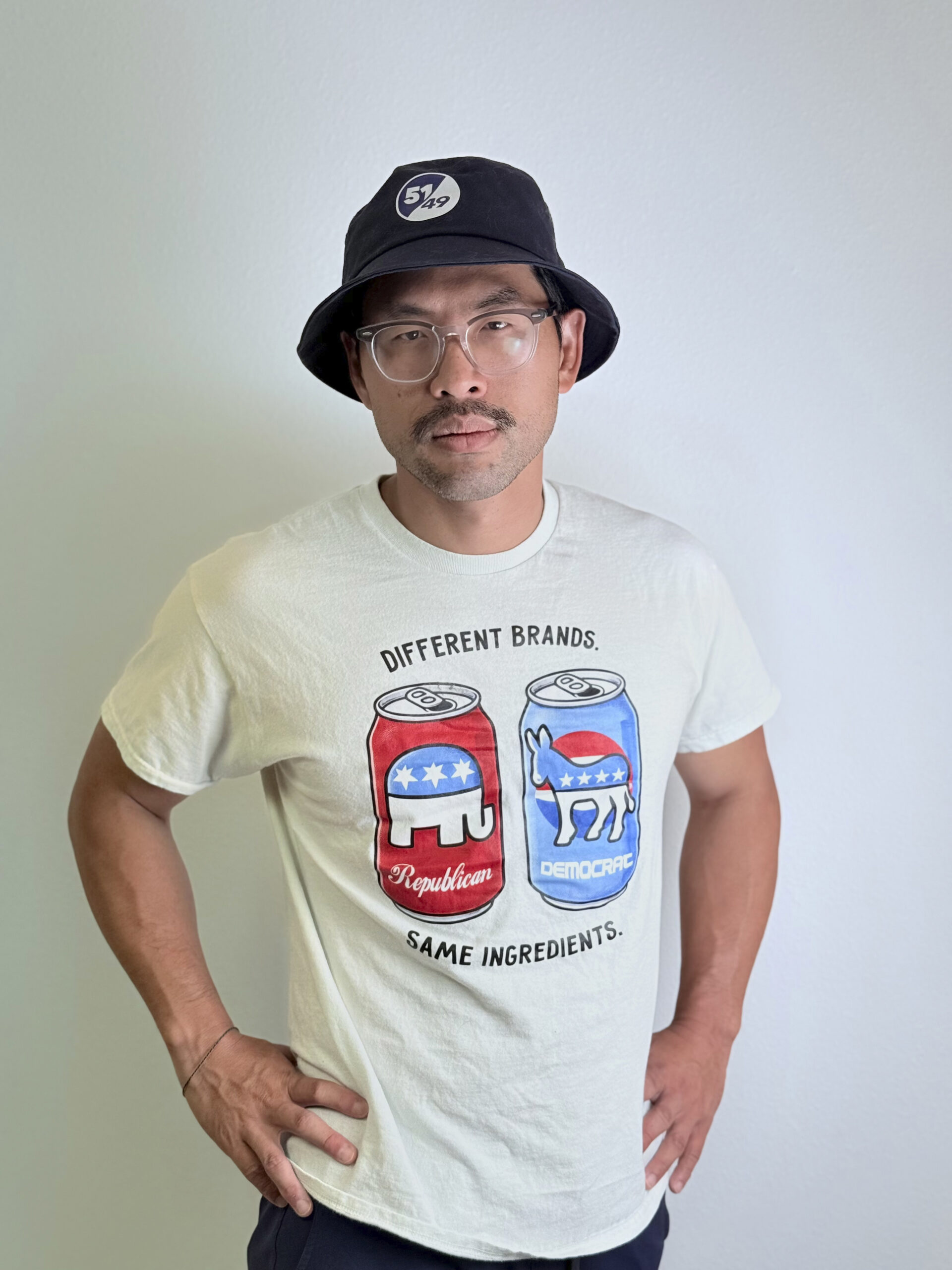
Photo Courtesy of James Li.
LORENZ: Where do you get your information?
JAMES LI: X is where I see what people are talking about, and then I start to pull threads of my own and track down other people with information. Sometimes they’re mainstream sources, and sometimes they’re independent journalists who are doing their own investigations. It depends on the subject. For example, I’ve done a lot of stuff related to the homelessness crisis in California, and I find the best coverage on that is from local reporters, whether it be LAist or The San Francisco Standard.
LORENZ: Do you consider yourself a reporter?
LI: I’m an independent journalist in the sense that I don’t have any editorial direction from anybody and I report on what I want. That doesn’t mean it’s unbiased reporting. I think those two things get mixed up.
LORENZ: Who are you posting for?
LI: I try to appeal to somebody who’s interested in the story beneath the story. For example, if Trump is making certain deals with Israel, that itself is a headline, but for me it’s saying, “What other things might be impacting why he’s doing that? Is it the $100 million from Miriam Adelson?”
LORENZ: What was your most viral story?
LI: It was about how food makers are finding different ways to make food more addictive in response to Ozempic. They’re trying to figure out, “Okay, how do I sell more food in this environment where people are eating less?” I got 10 million views on Instagram alone.
LORENZ: Who are your idols?
LI: People who I’ve worked with like Krystal [Ball] and Saagar [Enjeti] from Breaking Points and folks like Glenn Greenwald. Oftentimes he’s viewed as a person on the left, but also a person on the right, which means he’s doing the right thing.
LORENZ: People have a hard time placing you politically because you have Joe Rogan praising you, but then you have leftists praising you. Where do you see yourself within that ecosystem?
LI: I have a pretty diverse audience and the reason is I don’t report on things based on ideology. For example appeals to the let bat also have reporting that’s considered to be anti-vax, where I’m scrutinizing Big Pharma, and that confuses a lot of people. I find that if you look deeper, there’s a lot of commonality between these issues. In the same way anti-Semitism is weaponized to not talk about the war that’s going on over there, anti-vax rhetoric is used to stop people from talking about Big Pharma. But a lot of times these issues are coded in Democrat or Republican or conservative and liberal, and I don’t really see myself fitting into that kind of bucket.
LORENZ: Where and how do you get your news?
LI: X is where I do a lot of my discovery to see what people are talking about. I try to find credible voices or publications. For example, I find that leftist publications like American Prospect and Jacobin have good information about unions and things like that. But then if it’s related to health, I go to U.S. Right to Know where they really scrutinize information.
LORENZ: If a big newsroom like Fox or CNN called you with a job offer tomorrow, would you take it?
LI: No. I want to find my own path and do the type of reporting that I want to do. The pinnacle of a journalist’s career isn’t getting a byline in The New York Times. It’s finding the audience and serving them to the best of your ability.
LORENZ: What do you do if something you report on ends up being proven wrong?
LI: Oftentimes my work is more analysis, so it’s more of a take or a perspective on it. But if something was completely wrong, I would go back and issue a correction, which I’ve done a few times.
LORENZ: A lot of people in America get their news from TikTok. Do you think this is a good thing?
LI: In general, yes. Some of it is good, some of it’s not. What remains to be seen is whether or not the TikTok news creators can stay independent or if they will eventually fall into the same type of reporting that mainstream media does.
LORENZ: Have you noticed your audience influencing what you cover?
LI: I don’t really take money from my audience, so I don’t have that constraint.
LORENZ: What do you think is the biggest problem with mainstream media?
LI: For me, mainstream media just means corporate media. You could argue Joe Rogan is mainstream, but I think the main problem is the incentive structure. The job of a journalist is a watchdog. You’re supposed to report on corruption and things like that, but some journalists just want to cozy up and get big interviews and things. So that in itself is creating a conflict of interest, whether it’s money-related or access-related.
LORENZ: Do you think traditional media is credible?
LI: In a lot of ways, yes. There’s a lot of journalists that do incredible work. They have the resources to gather primary-source evidence from the ground. Where the media falls apart in terms of trust is crafting the narrative. The overall arc of the story is probably not correct. For example, I can go to a New York Times article and the headline could be super misleading, but within that article, I can find bits and pieces of things that I can pull out.
LORENZ: How do you make money?
LI: I’ve done a couple of brand partnerships, one of them with Ground News. Other than that, I mostly make money from my work with Breaking Points as well as through the TikTok Creator [Rewards] Program and passive advertising with Google AdSense.
LORENZ: Are you worried about be ing censored or deplatformed?
LI: Yes. That’s one of my biggest corns, because the only thing I ha my voice. A few weeks ago I go banned from TikTok. I was able t get the account back, but I had to call some people to help.
LORENZ: What is the biggest misconception people have about your work?
LI: That I’m unbiased. Anybody who says they don’t have bias is ridiculous, in my opinion.
———
NOAH CARTER
TikTok: @noahglenncarter
Follower count: 9.6M
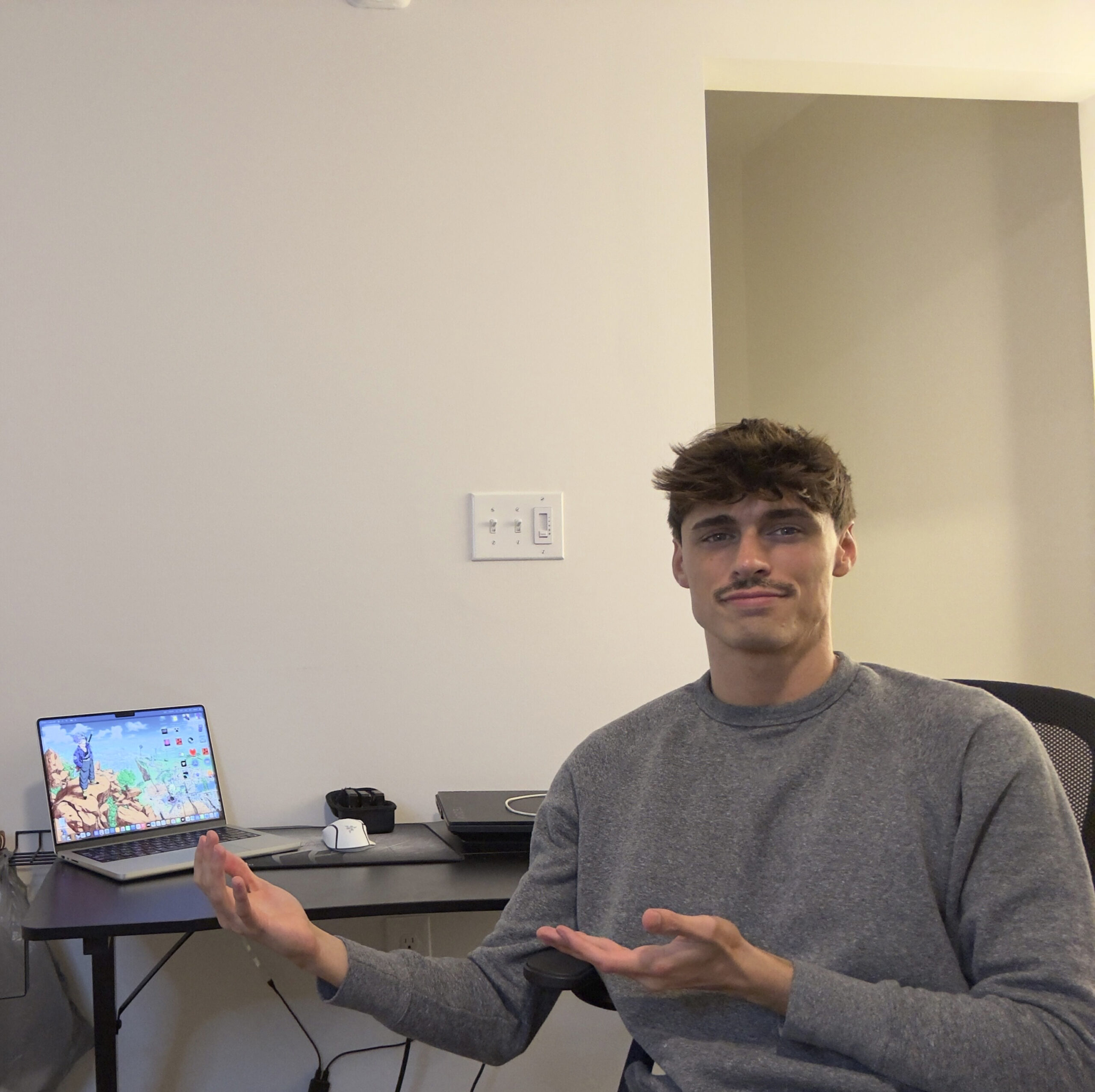
Photo courtesy of Noah Carter.
TAYLOR LORENZ: You’re one of the most well-known and earliest news TikTokers. I think I started following you back in 2021. What made you start?
NOAH CARTER: I saw a gap. There was a lot of commentary at that time, but there wasn’t anyone talking about current events, so I was like, “Let me be the guy that takes that over.”
LORENZ: Do you consider yourself a reporter?
CARTER: Not really. Sometimes I’ll report, sometimes I’ll do commentary.
LORENZ: How would you describe your audience?
CARTER: They’re on the younger side, so I cover a lot of stuff to do with TikTok and trends.
LORENZ: What was your most viral story?
CARTER: It was about Kendrick Johnson. He was found dead in a roll-up mat at a school in Georgia and his death is kind of a mystery. No one’s ever been charged for it.
LORENZ: Who are your idols?
CARTER: I’m actually friends with one of my idols now, Ray William Johnson. I cried when he followed me.
LORENZ: How many hours do you spend online and are you ever doing in-person reporting?
CARTER: People like to say that when my house burned down I was doing in-person reporting.
LORENZ: Tell me about that for the people who don’t know.
CARTER: Back in 2023, my house burned down. I was asleep, and my dad threw a brick through my window and was yelling to get out of the house. I tried to go downstairs; smoke was coming up, so I had to get out through the second story window. I was posting about it on my story to let everyone know what was happening.
LORENZ: If a big newsroom like Fox or CNN offered you a job tomorrow, would you take it?
CARTER: It depends on what the job entails, but I would definitely consider it.
LORENZ: What do you do if you report on something that ends up being proved wrong?
CARTER: I’ll make an update. But the problem with that is a lot of times the initial video will get millions of views and the update will not get anywhere near that. A lot of times I’ll just delete the video, but sometimes I’ll leave the original post up so people don’t think I’m trying to hide the fact that I was wrong.
LORENZ: A lot of people get their news from TikTok these days. Do you think that’s a good thing?
CARTER: I would say be very careful because it’s faster than other social media. You have to be first to the story, so a lot of times people sensationalize stuff to get that extra viral push.
LORENZ: Have you noticed your audience influencing what you cover?
CARTER: Definitely. Sometimes my audience will even say, “Hey, you should cover this.” And they’re almost never wrong. When I cover what they want me to cover, it gets insane viewership.
LORENZ: Do you ever worry about being censored or deplatformed?
CARTER: I definitely worry about that, especially on TikTok. People have to say “pew pew” instead of “gun.” There’s a lot of censorship.
LORENZ: Has that affected your ability to cover certain stories?
CARTER: Sometimes I won’t cover a story because I’m like, “TikTok will probably take it down.” So I’ve been kind of self-censoring. If it’s a story about rape or murder, I’ll try to avoid it.
LORENZ: How do you think about bias in your coverage?
CARTER: If I get stories from a news source and the source is biased, I have to be conscious of it. But a lot of times I’ll just be like, “This is a big story, let me get it up as fast as possible.” And then I’ll be parroting a bias without knowing that I am.
LORENZ: Do you use A.I. in any of your work?
CARTER: I’ve been told to but I’m old now, so I don’t know how to really use A.I.
LORENZ: How old are you?
CARTER: I’m 28. Everyone on TikTok makes me feel so old. They’re always saying I’m unc status.
LORENZ: What is the biggest misconception people have about your work?
CARTER: Probably that I sit around and do nothing all day. That’s definitely not true.
LORENZ: Tell me about your days.
CARTER: I wake up and start scrolling for different video ideas. I eat breakfast, come back, start filming, and then edit. I’ll work out, and then at night once I’m done with my day, I’ll come back to bed, look for more stories for the next day, and then repeat the process.
LORENZ: How do you verify what’s true?
CARTER: It’s hard. I don’t even know if anything’s really verifiable because you’ve got to go by what the news sites say. You just kind of put faith that they’re telling the truth.
LORENZ: What do you think is the future of news media?
CARTER: It’s definitely in social media, because the big news agencies can’t keep up with how fast-paced it is. Some will adapt, but most of them will probably get left behind.
LORENZ: That’s bleak, but probably correct.
———
MONIQUE
TikTok: @blackbeltbabe
Follower count: 891.1K
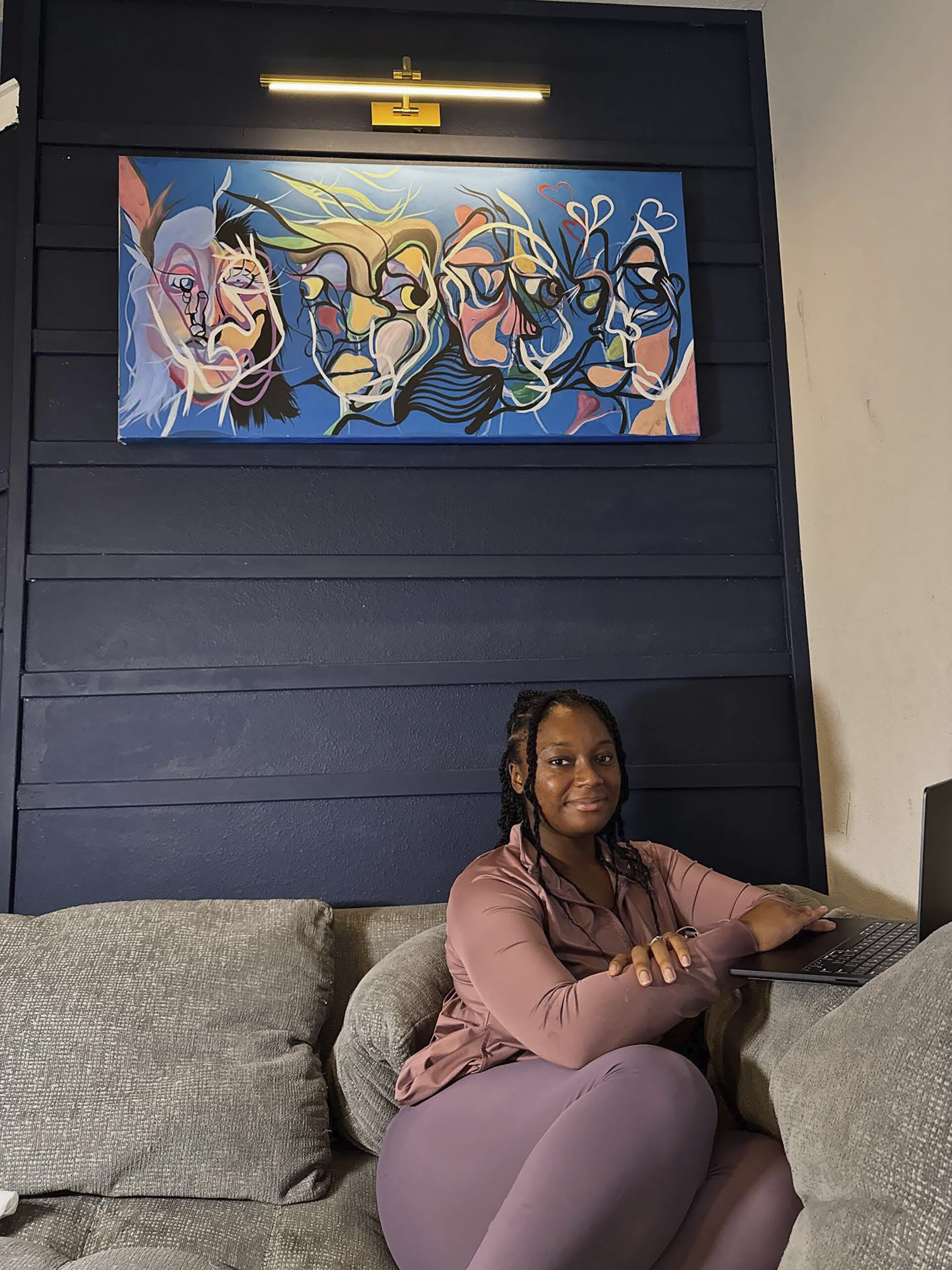
Photo Courtesy of Monique.
TAYLOR LORENZ: Why did you start covering the news on TikTok?
MONIQUE: Because there was a knowledge gap. I’m a Black woman living in the South. I’m a union steward and a community organizer against police crimes and someone that believes in liberation and justice for all oppressed people, and I noticed that the news wasn’t being told from that lens on TikTok.
LORENZ: How do you get your information?
MONIQUE: Sometimes I go to Fight Back! News, which is stuff that is written for the people by the people. I’m still stuck in the cesspool of X, so I’ll find different updates on there, like court documents. When the TikTok ban was happening, SCOTUSblog was incredible to follow.
LORENZ: Do you consider yourself a reporter?
MONIQUE: I jokingly call myself the people’s reporter when I’m reporting on things that I’ve experienced firsthand. Sometimes I’m a commentator, and I mix those two things often. Today there was a horrible mass shooting and I went off script and added my own commentary because I was like, “This is freaking ridiculous.”
LORENZ: What was your most viral story?
MONIQUE: When the changes in student loans were happening. They got millions of views.
LORENZ: Who do you look up to?
MONIQUE: Regular people that do stuff on Fight Back! News because they’re just like me. Frank Chapman is wonderful. He’s an organizer in Chicago and the executive director of the National Alliance Against Racism and Political Repression.
LORENZ: How many hours a day do you spend online, and are you ever doing in-person reporting?
MONIQUE: I spend way too much time online, about three to four hours at least. I do some in-person reporting. For example, a couple of months ago my friends were arrested at City Council, so while we were doing bail support, I was on the ground talking about how folks around the country could support the bailout efforts for my friends.
LORENZ: How do you choose which stories to cover?
MONIQUE: I have two very close friends and my husband, I call it the Little War Room. Sometimes I’ll send them stuff I want to cover and ask, “What do you think?” Other times, I’ll look up some stuff about unions and see what’s going on. If there’s something happening in my city, like we had recently a police crime that was caught on camera, I’ll report on it.
LORENZ: What do you do if something you report on ends up being proved wrong?
MONIQUE: I usually just put an edit in the captions. Sometimes I’ll delete the video and then offer a retraction. Typically, with stories that are fast evolving, I’ll say, “This is the news that we have right now. If anything changes, I’ll be sure to update you.”
LORENZ: A lot of people get their news from TikTok. Do you think this is a good thing?
MONIQUE: I do. Of course, there are some issues, like making sure that you’re checking the source and the reliability of the people, and what lens are they reporting from. Are they being paid by third parties? But in the age of information, things are always evolving.
LORENZ: Have you noticed your audience influencing what you cover?
MONIQUE: I make content as a Black woman living in the South who’s also an organizer, a mother, and a union member, so I lean into that type of news. I attract a lot of followers that tend to be African American, that tend to be community organizers. In terms of metrics, I don’t really look at them because if I do I’ll go crazy.
LORENZ: How do you communicate with your viewers?
MONIQUE: I always try to respond to the good comments. I filter out the bad ones because I don’t want to ruin my mental health. But I get so many tips via email. People leak things to me—videos, health memos, things about ICE.
LORENZ: What do you think is the biggest problem with the mainstream media?
MONIQUE: They’re so restricted on what they’re able to say and do. There’s like a certain narrative they have to push. For example, I didn’t learn about Palestine and Gaza until 2016. Mainstream media always taught me that this was a conflict between two groups who were bombing each other over religion, and it wasn’t until I came into contact with a community organizer who sat me down and educated me about the matter that I found out.
LORENZ: Do you consider legacy media credible?
MONIQUE: I don’t, and there’s a few reasons why. The biggest is that they’re at the will of the current president. I’m looking at Trump suing all of these different broadcasting networks. They’re also at the will of their sponsors and donors and people that run ads through them because the goal is profit-sharing. We saw that with the stuff that was happening in Palestine, we saw that with legacy media talking about these terrorists and not ever referring to it as a genocide. I even saw it with police crimes, people focusing on looting instead of the peaceful protests that happened. We even saw it with Katrina. Legacy media made Black people who were searching for food look like complete criminals.
LORENZ: How do you make money? Do you do brand partnerships?
MONIQUE: I don’t do brand partnerships. I have a full-time job as a public sector worker. I do this on the side. Sometimes I’ll get paid in the TikTok Creator Fund, but it’s not nearly enough to substantiate any type of income.
LORENZ: Do you worry about being censored or deplatformed?
MONIQUE: All the time, but if it happens, it happens. I notice that videos where I talk about police brutality or have criticisms of capitalism or talk about Palestine are censored a lot more often than videos where I’m talking about, for example, a food and safety recall that I saw on the FDA website.
LORENZ: What does truth mean to you?
MONIQUE: Truth means looking at something through the lens of a working-class person and asking myself this question: How are oppressed people affected? How are these things going to determine our destiny and the things that we do in life? Truth looks like honoring my worldview.
LORENZ: Are you using AI at all?
MONIQUE: No. For me, ChatGPT is unethical. I recently learned about what OpenAI does in other countries when it comes to weapons defense, so it’s not something that I use.
LORENZ: What is the biggest misconception people have about your work?
MONIQUE: That I do this full-time. I’m a full-time public sector worker, and I think that also makes me a lot more down-to-earth and understanding of what’s happening in the real world.
———
LINK LAUREN
TikTok: @itslinklauren
Follower count: 902.6K

Photos courtesy of Link Lauren.
TAYLOR LORENZ: Why did you start covering the news on TikTok?
LINK LAUREN: I was covering a lot of pop culture and Royal Family news, and then I started the primaries in the spring of ’23. I started to take off, so I just leaned into it.
LORENZ: Where do you get your information?
LAUREN: X. I follow enough accounts that when I go on X, I can see what’s happening up-to-the-minute, and then I can sort of assess what is real and what’s not. Sometimes you see something you know, “Okay, that’s fake or that’s AI.” And then I hear things through the grapevine.
LORENZ: Do you consider yourself a reporter?
LAUREN: Definitely. I’m a new media journalist.
LORENZ: Who are you posting for?
LAUREN: I’m not really posting for anyone in particular. My audience is about 85 percent women, and a lot of them are age 50 and up, so I have that in the back of my mind. I guess I’m just posting for myself.
LORENZ: What was your most viral story?
LAUREN: Probably the one about the Kappa sorority in Wyoming that accepted a transgender student. I remember covering that on TikTok way back when I was starting out and it got over 7 million views in two days. Then what really helped me on TikTok was Kamala Harris’ 107-day campaign. It was such a wild ride.
LORENZ: Do you consider yourself more of a journalist, commentator, or entertainer?
LAUREN: You know what’s funny? I will rail against all the new pronouns and the DS and all the fricking made-up woke stuff right now in our culture. But then when it comes to my career, I don’t care about labels at all. Some people think I’m a serious journalist and they love my content and they love what I do. And then some folks on the left say I’m a hack, so it’s in the eye of the beholder. But I definitely consider myself a journalist. I cover the White House pretty regularly. I’m never wrong. But it’s 2025, and I think we’re in an era of journalism where people want to know you instead of hiding behind being this fully bipartisan person with no opinions. You can give them the news and give them the facts, but they also want to know where you stand.
LORENZ: Who do you consider your idols?
LAUREN: I look up to Megyn Kelly, which is interesting now that we’re in business together.
LORENZ: Can you talk a little bit more about the in-person reporting that you’re doing?
LAUREN: I don’t go to the White House too often, but I make sure when I do I make the most of it. I think having that awe and understanding of the auspicious place that it is helps me with my content. Two years ago I was making TikToks in my room, and now I’m eating an egg sandwich and a yogurt parfait on Air Force One.
LORENZ: If a big newsroom like Fox or CNN called you with a job offer tomorrow, would you take it?
LAUREN: If Fox News wanted to hire me I would take the meeting, but I’m so happy with what I’m doing now. I don’t see what I would gain from going on CNN. I can already cover the White House. I have a press pass.
LORENZ: A lot of people get their news from TikTok. Do you think that’s a good thing?
LAUREN: I never scroll through the For You feed. I make my videos and then I’m out of there. So if everybody’s getting their news from TikTok, it’s great for my career. And the mainstream media did it to themselves. They’re the ones who didn’t evolve. They betrayed the trust of the American people, so they moved on. People want to be entertained, and when I look at CNN and MSNBC and some of these other networks, I’m so bored. Give people some glamour and something to look at.
LORENZ: How do you communicate with your viewers? Does your audience influence what you cover?
LAUREN: Totally. If I’m standing in front of President Trump, I’m going to ask him what I think my audience is interested in. And because I don’t have a boss like an editor in a newsroom, I can cover what I want.
LORENZ: How do you make money? Do you do brand partnerships?
LAUREN: I don’t do almost any brand partnerships, but I make money off the podcast. I’m selling about three ads an episode now. So every ad space is filled. And then I do make money from TikTok as well from their Creator Program. I can’t speak for other conservative influencers. I’ve never taken a dollar from a PAC or anyone paying me to say anything. In fact, I’ve turned all of that down. You cannot buy my opinion. Even in my contract for my podcast, I’m in full control of the editorial and what I want to say.
LORENZ: Are you using AI?
LAUREN: No. I knew you were going to ask this question, because I know other podcasters do; I can tell so easily. There are even late night shows where the monologue is a little ChatGPT. There is literally nothing in the prompter on my podcast. I’m such a Gen Z diva.
LORENZ: Do you worry about being censored or deplatformed?
LAUREN: Trump has said on record that he loves me so I don’t worry too much about being censored.
LORENZ: How do you verify what’s true?
LAUREN: I use my gut instincts or I’ll ask friends in my industry or other folks in DC, “Hey, what’s going on with that?”
LORENZ: What do you think is the future of news media?
LAUREN: I think we will see some more of these legacy media networks shutter. Some of them will survive and evolve, but everybody will be on social media getting their news.
———
VITUS “V” SPEHAR
TikTok: @underthedesknews
Follower count: 3.6M

Photo Courtesy of Vitus “V” Spehar.
TAYLOR LORENZ: When did you start covering the news on TikTok?
V: January 6, 2021, was the first time that I did the Under the Desk News report. I was explaining the 25th Amendment to Mike Pence in a satirical way. I’d been making culinary TikToks and teaching people how to apply for PPP loans so it fit with my format.
LORENZ: Where do you get your information?
V: A bunch of different places—traditional media outlets like Associated Press or The Washington Post, but also from first-person narratives that I see on social media, and niche magazines. If I’m looking for science news, I might go to a science publication and read about it there.
LORENZ: Do you consider yourself a reporter?
V: I do now. For a while I was like, “I’m anchoring the news.” But now that we do original reporting, I feel very at home with that term.
LORENZ: Who are you posting for?
V: Originally, I would say it was a 50/50 split between conservatives and liberals. And now that people have become so tribal in the way they consume news and what they consider to be the truth, it’s shifted to be more left-leaning. My audience is mostly women but each platform is a little different.
LORENZ: What was your most viral story?
V: The Epstein stuff does pretty well.
LORENZ: Do you consider yourself more of a journalist, commentator, or entertainer?
V: In new media, you have to be a little bit of each.
LORENZ: Who are your idols?
V: I don’t really idolize anybody but I really like Ayman Mohyeldin from MSNBC. He does a great job of not just original reporting, but communicating things in a calm, cool way. Not to be that guy, but I got to spend time with Bob Woodward and I found him extremely interesting.
LORENZ: Where and how do you get your news?
V: I watch a ton of TikToks and Instagram Reels and YouTubes, so I would say it’s probably 50/50 new and trad.
LORENZ: How many hours do you spend online versus in-person reporting?
V: I have about nine hours a day of onscreen time unless I’m doing a speaking gig or something in person. But my audience doesn’t care if I’m in person. They’re used to me being in digital spaces.
LORENZ: If a big newsroom like Fox or CNN called you with a big job offer tomorrow, would you take it?
V: They have before and I didn’t. This was last year, right before Kamala Harris became the candidate. It takes away a lot of the freedom and a lot of the financial access that I can unlock as an independent person. At this point, it would depend on what that deal is. Nobody’s watching TV. But if somebody wanted to invest in helping me grow my YouTube, we would probably have to look into that.
LORENZ: I totally agree. I regret going into traditional media so much. I feel like I wasted five years of my life on a weird detour in some ancient world. How do you choose which stories to cover?
V: I know what’s been over-covered throughout the day, so I go into what is most consequential to the public, typically something in politics. Then I try to end with something funny. Tonight’s news is ending with a Taylor Swift impersonator because it gives the audience a little something to chit-chat about in the comments. Not everything has to be so serious.
LORENZ: A lot of people get their news from TikTok. Do you think that’s a good thing?
V: I think it’s good that people are engaged in information seeking, but the ability to impersonate a newsperson has become so normalized that there’s not much of a line between an op and somebody who’s genuinely trying to help people get better information. A lot of folks have figured out that they can just read Associated Press breaking-news clips and then add their comment to it, but you can’t come on and be like, “Don’t trust the media,” and then just regurgitate headlines. So I don’t think people should be like, “I get all my news from TikTok.” Please, god, don’t do that.
LORENZ: But also don’t get all your news from The New York Times or CNN.
V: Exactly.
LORENZ: What do you think is the biggest problem with the mainstream media?
V: Dynasties, or people sitting in the seat for too long. It’s stolen a lot of freshness, and I think that’s evidenced by the fact that MSNBC’s core audience is, like, 71 years old.
LORENZ: Do you think traditional media is credible?
V: I think the reporters want it to be, but it became a clock-in, clock-out job. When the structure is so rigid and the ad sales are so important, nobody wants to invest in anything the way they did back in the day. They make huge mistakes with the talent they put on the air and the stories they tell.
LORENZ: How do you make money?
V: I do brand partnerships and then I get paid on views, which is not a lot. In my first two or three years of doing Under the Desk News I worked a clock-in, W-2 job. I did that until it became too difficult to do both. But I can’t do all the partnerships I get offered, because it affects your credibility.
LORENZ: Do you worry about being censored or deplatformed?
V: I didn’t used to because I thought I was in with TikTok, but that’s not the case anymore. In the second Trump administration, everything is different. It comes from the way that he’s sued and won against trad media outlets and it comes from his cronies in the podcast or TikTok world who will sue other creators just to scare them. So I absolutely worry about being deplatformed, which is why I’m on so many different ones.
LORENZ: Are you using A.I?
V: I don’t use A.I, but I’m curious about it. I’ve been trying to educate myself on the ethical use of A.I.
LORENZ: What are the biggest misconceptions people have about your work?
V: That it’s paid by the Democratic National Convention. That I’m an op or a Fed or some sort of industry plant. Or that the work that people do on TikTok is not as valuable or investable as the work that somebody does on a newsletter that has 1,000 subscribers.
LORENZ: What does the truth mean to you?
V: There’s not one singular truth, and that’s the hard part. My dad would be like, “There used to be just one truth,” and I’m like, “Right, when they were writing everything from a white male perspective.” Now you have to take in more ideas of what the truth could be. The truth evolves more than ever before.
LORENZ: Where do you see yourself in the next year?
V: Hopefully, with a million followers on YouTube. Continuing to do this work, continuing to be a trusted, safe adult.
LORENZ: What’s the future of news media?
V: It’s digital, it’s first-person, it’s peer-led. It’s also local. People are really exhausted by globalism and national issues at large. When you look around your neighborhood and see things not going well, it’s hard to take on empathy for the entire world. I think people who have a niche specialty and smaller more dedicated audiences are the future. The quest to be everything to everyone is going to lead to nothing but burnout and mediocrity.




